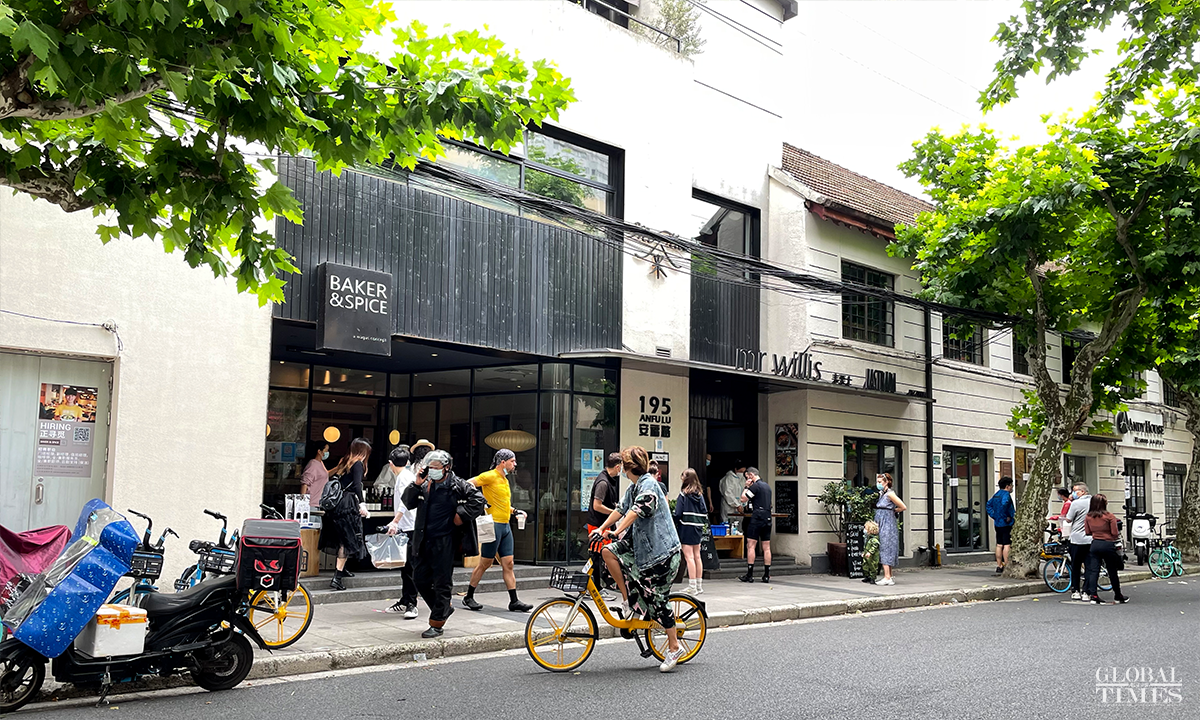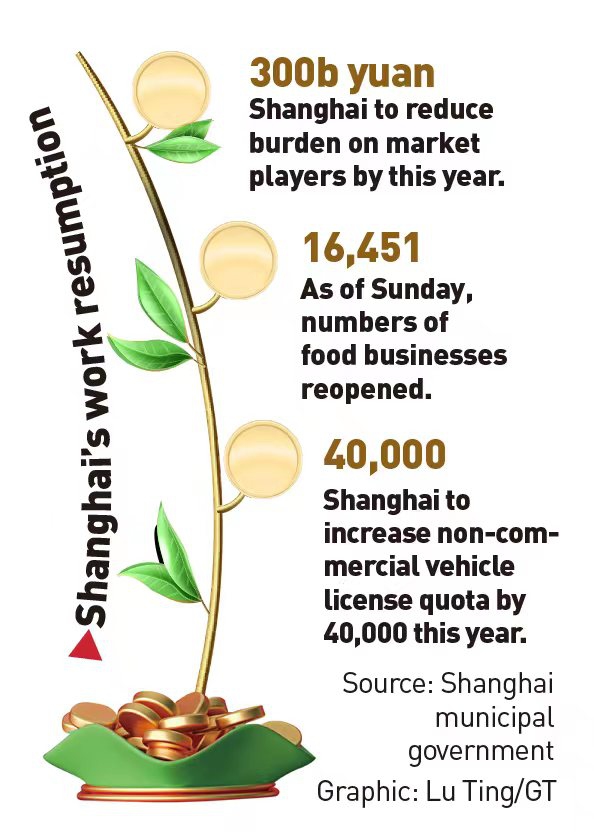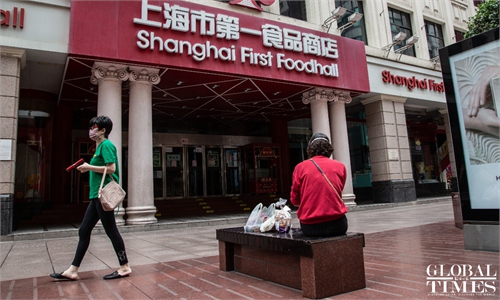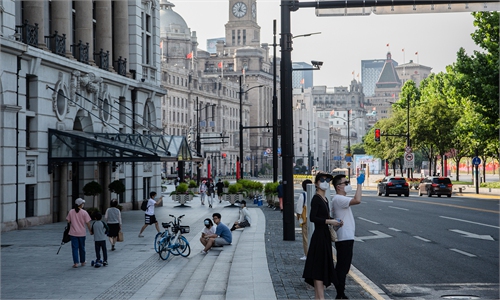Shanghai takes 50 measures to support economy as city eyes full recovery from COVID-19

Shanghai on the way back to normal Photo: Feng Yu/GT
Shanghai authorities on Sunday sent a clear signal of economic stabilization by rolling out a total of 50 stimulus measures to support the local economy, with a focus on business resumption and employment stabilization, as the city inches toward a full recovery from the most severe COVID-19 outbreak.The measures are being rolled out at a time when the city is at a crossroad. The epidemic situation has eased to a great extent after about two months of closed-loop management, but the economy has taken a relatively serious hit with consumption slumping and production capacity being restricted, factors that are likely be reflected in a second-quarter GDP contraction, some economists said.
But economists noted that the stimulus policies should hasten the recovery of the city's economy, which could take two or three months to achieve pre-epidemic levels.
The measures, rolled out by the Shanghai municipal government on Sunday, contain 50 moves that aim to bolster the economy in eight aspects, ranging from encouraging work resumption and stabilizing foreign capital to stimulating consumption.
In terms of production, starting from Wednesday, Shanghai will scrap the work resumption "white list" mechanism and other restrictions on companies that want to restart work or business.
In terms of employment, the city will give companies subsidies with a maximum amount of 3 million yuan ($450,000) to help them maintain jobs. Companies that hire new graduates or unemployed people will get a subsidy of 2,000 yuan per person.
In terms of consumption, the city will add 40,000 non-commercial vehicle licenses to the total quota this year, as well as giving a 10,000-yuan subsidy to consumers who replace old cars with electric cars. Other measures include reducing land and property taxes for qualified companies and starting eight or more urban village renovation projects this year.
According to Hua Yuan, head of the Shanghai Municipal Development & Reform Commission, this round of stimulus measures, in addition to the 21 stimulus policies set by the city government in late March, are expected to reduce payments of more than 300 billion yuan for market entities.
Shanghai's plan to recover the economy came on the heels of an unprecedented meeting organized last week by the State Council, the cabinet, that focused on supporting a domestic economy beleaguered by recent COVID-19 outbreaks.

Graphic: Lu Ting/GT
Shanghai's measures drew widespread attention because the epidemic in Shanghai recently was the severest among domestic cities, and the economic blows that Shanghai has sustained are believed to be tougher than many other cities, experts said.
"The strength of the policies is huge and extraordinary," Xi Junyang, a professor at the Shanghai University of Finance and Economics, told the Global Times on Sunday. Xi added that the economic impact of the epidemic necessitates measures of such intensity.
Shi Jianxun, an economics professor at the School of Economics and Management of Tongji University in Shanghai, told the Global Times on Sunday that it's necessary to launch such policies to keep problems like unemployment from deteriorating further.
In the long run, a healthy economic situation is also necessary to the government's launch of COVID-fighting measures, as fiscal conditions will be under pressure if the economy slows down too much, he said.
However, on the bright side, experts noted that Shanghai's economy is already starting to turn upward, and the process of recovery will speed up with the support of government policies.
Many enterprises in Shanghai have started working again and many are preparing for a full business resumption in June.
Information provided by United Overseas Bank to the Global Times showed that the bank has taken measures to prepare for a work restart, such as completing stress tests, setting up digital guards and on-site health codes at the bank's building in Shanghai to coordinate COVID-19 prevention work, and making contingency plans for coronavirus prevention and closed-loop management.
Standard Chartered Bank China also told the Global Times that it is actively preparing for on-site work.
Shi suggested that local officials send more signals to the market that they will strike "a balance between epidemic control and economic developed to boost companies' long-term confidence."




